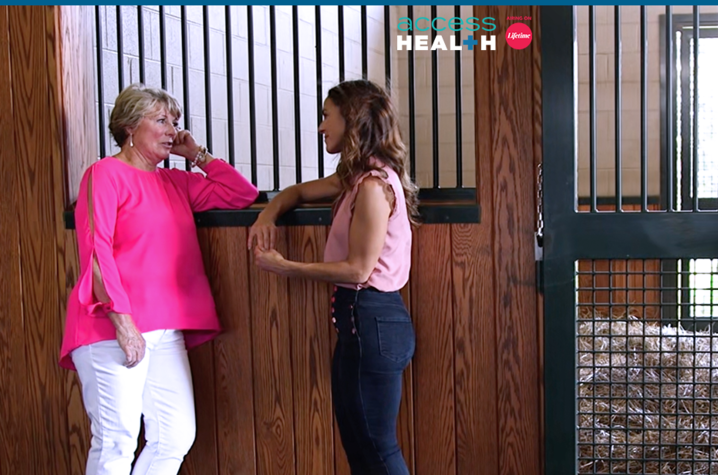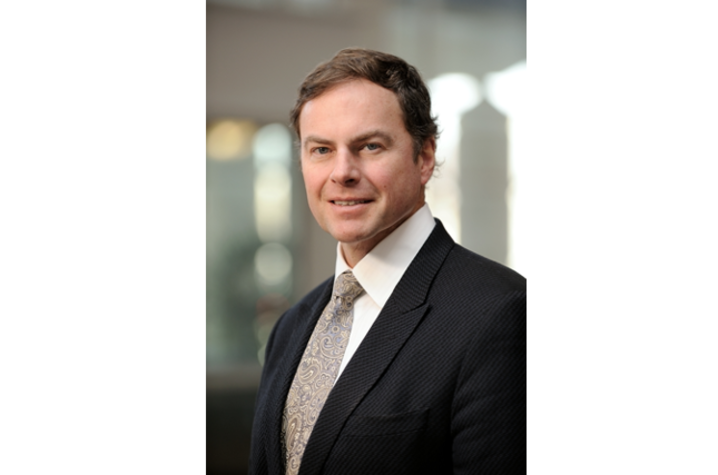UK Neurosurgeon and Patient Featured on Recent Episode of Access Health
LEXINGTON, Ky. (Feb. 9, 2022) — Access Health is a series airing on the Lifetime network that aims to educate its viewers on the latest advances in medicine, nutrition, and fitness. Each episode addresses an important issue related to one of the topics and provides its viewers with insight from industry experts.
This week’s episode focuses on Parkinson’s disease and a treatment known as deep brain stimulation (DBS). To highlight DBS as a treatment option the episode shares the story of UK HealthCare patient Ann Hanley and her doctor, Craig van Horne, M.D., Ph.D., Virginia T. Barrow Endowed Chair at the University of Kentucky, and a professor of neurosurgery at the University of Kentucky’s College of Medicine.
Hanley was diagnosed with Parkinson’s disease at age 49. Parkinson’s is a degenerative disease that damages and eventually destroys neurons in the brain, causing muscle rigidity and tremors, difficulty moving, unstable posture and ultimately death. It is estimated about 10 million people worldwide have the disease, which has no cure.
Instead of letting the news of her diagnosis get her down, Hanley found a way to help other Parkinson’s patients. She began shadowing van Horne to provide support to his other patients, which included following them into the operating room and sitting with them through DBS surgery – a technique that can relieve Parkinson's symptoms for some patients.
On the recent episode of Access Health, Dr. van Horne explains DBS surgery for treatment of Parkinson’s, “We implant a stimulating electrode to pass an electrical current that will alleviate some of the motor symptoms of Parkinson's disease. The right time for a patient to consider deep brain stimulation is when a patient is experiencing symptoms on a daily basis that are not well controlled with medication after multiple attempts of adjusting the medications. Some symptoms that don't respond to medication such as tremor can be very effectively treated with deep brain stimulation.”
Hanley remembers her first time seeing a patient undergo the surgery and discusses that on the episode. “Once I saw the very deep brain stimulation, my mind was completely blown. I was just so enthralled by what they could do,” she said.
While helping other patients navigate their health journey, Hanley’s own symptoms were steadily getting worse, and van Horne believed she would be a good candidate for DBS.
“Well, it was the strangest thing being the patient, and knowing the whole team involved. So, it was truly amazing. I won't say I was nervous. I was confident,” said Hanley.
During the episode, Hanley explains what her life is like now and says she does not notice tremors since having the DBS surgery. “I just wish I had done this so much sooner. It's like going from watching a movie in black and white to a big-screen Technicolor. And the world has opened up to me. I can go racing. I'm not concerned about people looking at me and my confidence is back,” said Hanley.
As the wife of WinStar Farm’s General Manager David Hanley, through the years the patient turned advocate has reached out to the thoroughbred community to raise money to help advance Dr. van Horne’s research surrounding DBS treatment. The industry enthusiastically embraced her efforts, now known as the Ann Hanley Parkinson's Research Fund, which supports ongoing research at the University of Kentucky.
The episode of Access Health featuring Dr. van Horne and Hanley is scheduled to air on the Lifetime network on Wednesday, Feb. 9, at 7:30 a.m. You can watch the episode after it airs on YouTube.
As the state’s flagship, land-grant institution, the University of Kentucky exists to advance the Commonwealth. We do that by preparing the next generation of leaders — placing students at the heart of everything we do — and transforming the lives of Kentuckians through education, research and creative work, service and health care. We pride ourselves on being a catalyst for breakthroughs and a force for healing, a place where ingenuity unfolds. It's all made possible by our people — visionaries, disruptors and pioneers — who make up 200 academic programs, a $476.5 million research and development enterprise and a world-class medical center, all on one campus.






